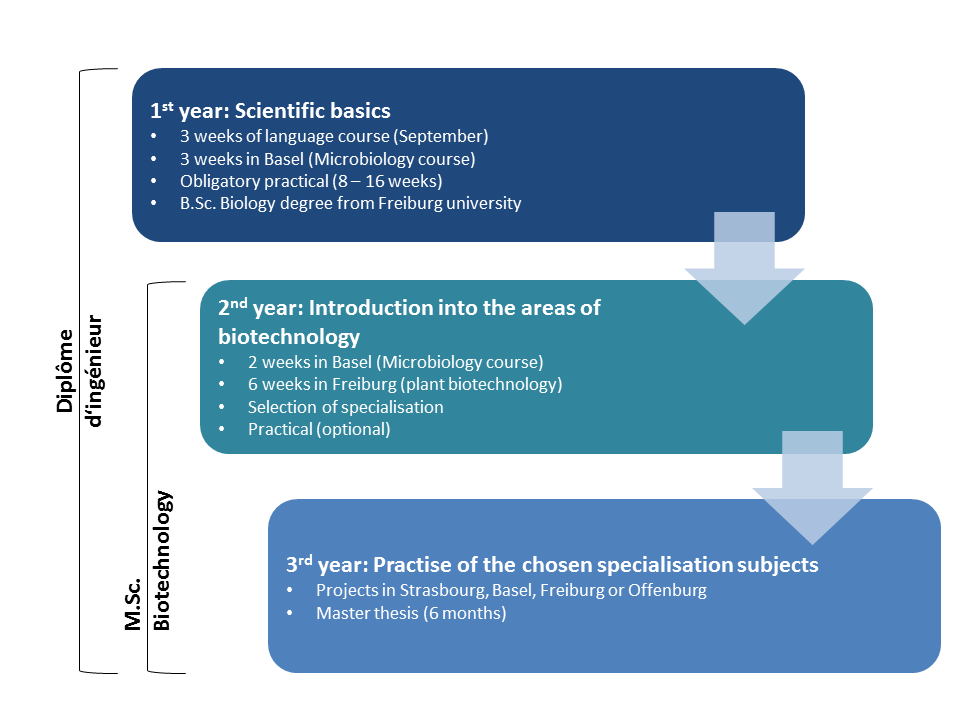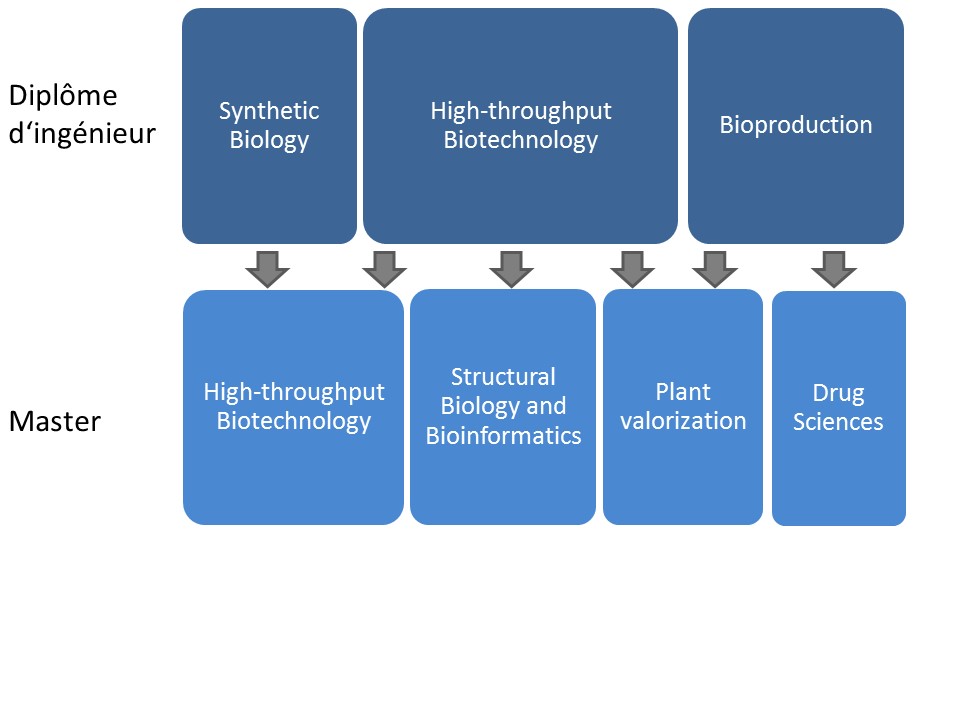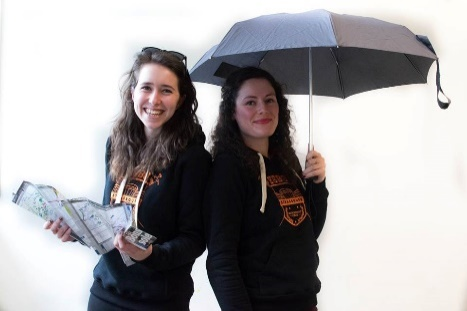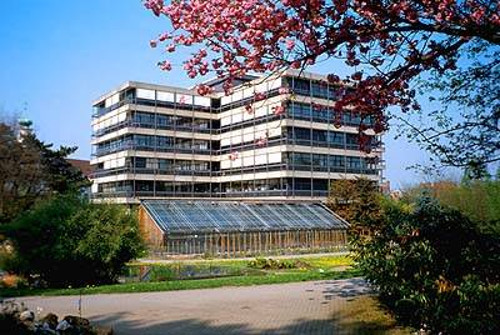Content
The goal of biotechnology is to develop technical methods that make use of biological processes. Thus, biotechnology is an interdisciplinary science, drawing from advances in Biology, Chemistry and Engineering. Examples of biotechnological methods long in use are beer brewing and cheese production. Today, biotechnology covers a wide area, including biological processes involved in pharmaceutical technology, energy production or production of foodstuffs. The Biological aspect supplies basic knowledge from the medical, molecular biological, microbiological and botanical fields. The Chemical aspect delivers important findings for development from biochemistry and analytical chemistry. Finally, principles of applied Engineering enable the building of production processes.




